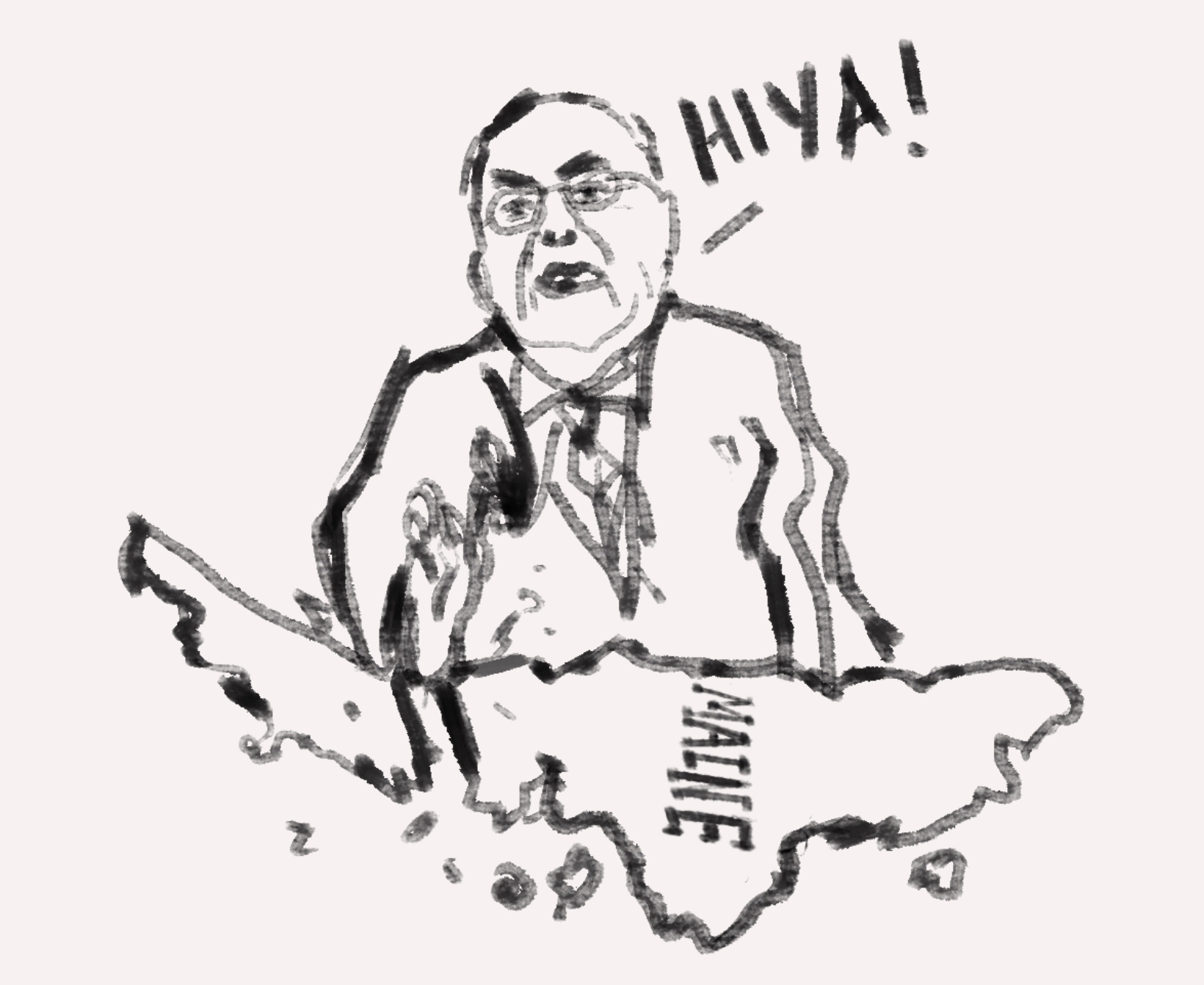A look outside the Bowdoin bubble
February 4, 2022
 This
piece represents the opinion of the author
.
This
piece represents the opinion of the author
.
As a Bowdoin student from central Maine, I have begun to realize that, in many ways, Maine is like two different states. To the Bowdoin students who are used to the liberal and welcoming politics of Brunswick and the greater Portland area, there is confusion as to how someone like Paul LePage was able to become the leader of such a seemingly open-minded state. Called America’s ‘Trumpiest governor,’ LePage became infamous for his racist rants about drug traffickers and his obscene voicemail to a lawmaker who called attention to his racism. Just weeks into his tenure as governor, he shockingly told the NAACP to kiss his butt.
Understanding the popularity of LePage, who is now running for a third term as governor, is critical to understanding the totality of Maine, its people and its ongoing economic challenges.
As someone from the more rural and conservative part of the state, it is not surprising to me that LePage remained popular among so many of the white working-class Mainers who loathe the technological advancement and change associated with people from southern Maine, and especially with those from out of state. To these voters, LePage, being from the town of Lewiston—which is known for its blue-collar roots—means more than just loyalty and understanding. His tenure as a manager of Mardens, a chain discount store popular in the state, gave him cache as a hardworking man of the people. His bluntness and willingness to offend the “elites” was also part of the appeal.
In addition, LePage plays into the “us versus them” mentality that has been exacerbated by the political and socioeconomic differences among Maine’s first and second congressional districts. To those from southern Maine, LePage and his supporters are often viewed as ignorant and bigoted people, stuck in the past and obstinately trusting the GOP to somehow save them from their economic failures. To many from the northern parts of the state, wealthy out-of-touch people and people “from away” are not seen as real Mainers and don’t understand the struggle that comes from the loss of commerce and support that came with the shrinking of the mill industry in many communities. When people lament the popularity of figures like LePage and Donald Trump in Maine, blame is pushed onto the “hicks” for their closed-mindedness. This, in turn, causes conservative voters to feel distanced from the people and politics of the southern part of the state.
I recently heard that a student from out of state was told that everyone from north of Bangor is crazy. But this again speaks to the idea of the vastly different poles of the state of Maine. There is no line that divides the politics of Maine into normal and crazy or liberal and conservative. There is, however, the concept of a “Volvo line” that demarcates how the quality of life and values are believed to shift from yuppie millennials and crowded tourist towns to hunting and fishing enthusiasts who love the Second Amendment and use Facebook as their primary news source. But this line also speaks to issues of income inequality and wealth disparities in the state.
While these divisions are salient in situations like elections, they are not black and white. There are Bernie Bros in Presque Isle and Trump fans in Portland. Maine’s second congressional district (representing the northern four fifths of the state) has a Democrat for its representative. At its core, classism is a large component of the conversation, and disparities in education and income must be recognized. Generally, the further north you look in Maine, the lower the median household income becomes, the lower the level of education becomes and the more economic opportunity becomes scarce. While poverty is not the root of conservativeness, this gap in vitality is a source of contention.
Misplaced anger for Maine’s disparities elevates people like Paul LePage, who can make big promises to empower those who feel left behind and ignored, and who has a Trump-like persona of being tough on outsiders and having the best interests of the people of rural America at heart.
Not noticing and understanding the complexities of all of Maine—including the parts of the state that are geographically far, and very different from, Brunswick—can lead to a simplistic understanding of Maine’s politics.
Comments
Before submitting a comment, please review our comment policy. Some key points from the policy:
- No hate speech, profanity, disrespectful or threatening comments.
- No personal attacks on reporters.
- Comments must be under 200 words.
- You are strongly encouraged to use a real name or identifier ("Class of '92").
- Any comments made with an email address that does not belong to you will get removed.


Nice job on your new column!
Thank you 🙂